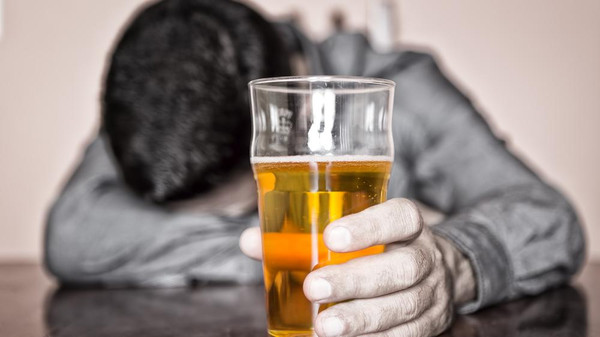
What does it mean to be an alcoholic?
This is a tricky question. The image years ago was of a middle aged man or woman in a house alone drinking until passing out, usually around 8am or noon. Things have changed. A person can be dependent upon alcohol, abusing alcohol or find themselves incapable of setting a limit. The question isn’t so much are you an alcoholic but rather, how does alcohol affect your life and your relationships? What problems is it causing? Can you control it or does it control you?
Do you go out and plan to have two drinks but find yourself having four or five?
Do you drive after drinking? Take risks you shouldn’t?
Do you forget parts of your night out?
If so, you are experiencing mini-black-outs. Put simply, when you drink excessively you leave your body. You are not there. It’s a method for numbing your feelings or what we call a self-defeating behavior. It helps in the short-term but defeats or harms you in the long-term.
If you are drinking too much or your partner is, we can help. We use motivational interviewing to assess what stage of change you are currently in. We talk about what you can do to create positive shifts in your behaviors. What is the role of alcohol in your life?
Partners of addicts suffer in a unique fashion. We understand this type of pain and will help you learn what you can do to take the best care of yourself possible. What can you do to keep yourself afloat in the midst of chaos? You will have some important issues to tackle, such should I stay or should I go? We won’t rush you to make decisions. Sometimes staying is what works best for you, especially if you have small children. We won’t judge you, only reflect back what we hear you saying and what we detect you are feeling. We will always check in with you to confirm if we are on the right or the wrong path.
What is a dry drunk? Is someone you love a dry drunk?
When an addict doesn’t replace an addiction with a healthy habit or hobby, or a real passion in life, the addict may appear angry, moody, at odds with the world, and he will pick fights with those around him. When as addict doesn’t truly understand where his addiction came from and why it is a struggle, he won’t be happy. There are reasons people use their addictive substances (alcohol, pot, cocaine, even diet coke and certain foods—especially salty and sweet combinations) and when they stop, they are not going to suddenly be happy and in tune with the world around them.
We encourage Twelve Step programs. We see people’s lives improving because of the steps. Addicts learn so much from participating in this process. Telling their story. Hearing other people’s stories. Oftentimes it is challenging for the addict to understand other people’s emotions. They struggle with empathy. This translates into challenges with intimacy with others and power plays: for the addict, healthy relationships are impossible.
Why did you first turn to drinking? What did it turn on in you? What did it turn off? What were you hoping to escape from, if only for a few hours?
Contrary to popular belief, you don’t need to drink every day or drink a certain amount or drink alone or drink at odd hours to be an alcoholic. You don’t need to be an alcoholic to have a serious problem with alcohol. Most often it is an intimate partner who is co-dependent and poking at you for treatment, that gets you in the door for counseling. Is someone pushing you to take care of yourself? Maybe they have a point.
How do you know you have a problem?
Are you the type of person who can go out and limit your drinks? Say to yourself: I will have three drinks tonight maximum? Or do you reach three and go for four or five. If so, you have a problem.
Do other people around you tell you: look, you drink too much. I’m worried about you. Or, please don’t drink tonight?
Maybe you socialize with a friend group where it’s acceptable, even encouraged, to drink a lot? But you’re getting older and you can’t quite party the same way anymore. The two day hangover? Or you can do it (physically) but…
Those co-dependents just won’t let up. Maybe your wife is nagging you and she just won’t shut up about it. Maybe your husband has a GPS on your phone and won’t stop “following” you and knows when you hit a happy hour. Does it feel like people are on you all the time and you just don’t get it? Addicts tell me this a lot. They have a way of leaving a trail of worry, rage, wreckage and anxiety for those close to them. Storms swirl around them and they act baffled. What did I do to deserve this? I just want to get away and escape. Does that sound like you?
Have you stopped drinking but you drink cooking sherry or NyQuil every night before bed?
Sneaking something?
Believe it or not, our psyches can behave insidiously. You may not realize what you are doing consciously, but if this sounds like you then you have a big problem. It’s not going to cure itself on its own. 90% of addicts do not shake the disease.
Do you tell yourself hey, I just drink socially. It’s not a problem. People are overreacting. I like to go out and have a good time?
Even binge drinking (with friends, on special occasions, not every day) can be a real problem. Whether it’s golfing for the day with buddies or vacationing with a boyfriend and getting drunk the whole trip or college students passing out. Binge drinking is a problem. It’s serious. It is particularly dangerous for women. I hear from lots of college students that it is simply an integral part of the culture. And from adults of all ages, that happy hour is how we socialize, oftentimes in Portland. It would be impossible to have friendships without it. We are not advocating for prohibition! But if you cannot control how many drinks you drink and you are completing a behavior that puts you in harm’s way and hurts the people you love, it is a self-defeating behavior. It does not work in the long-term. It will haunt you and damage you and the people you love. No doubt.
Why would you want to put yourself in danger?
Why would you want to do a self-defeating behavior?


